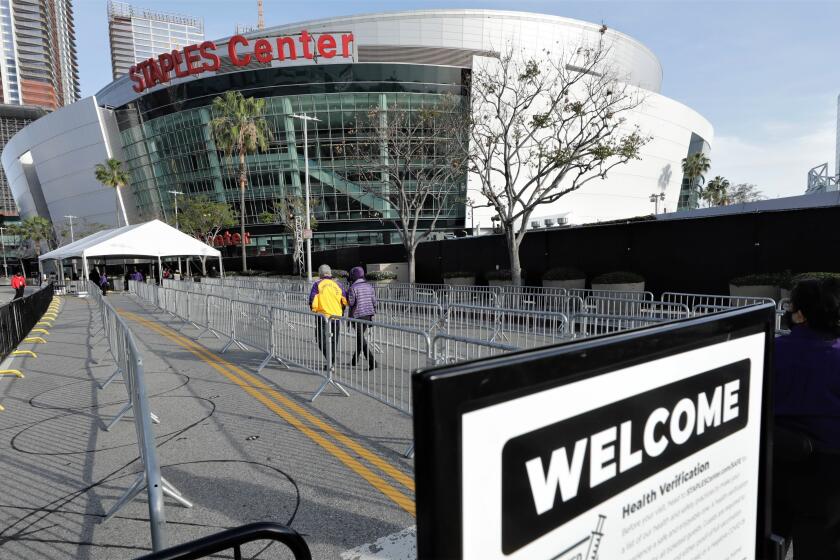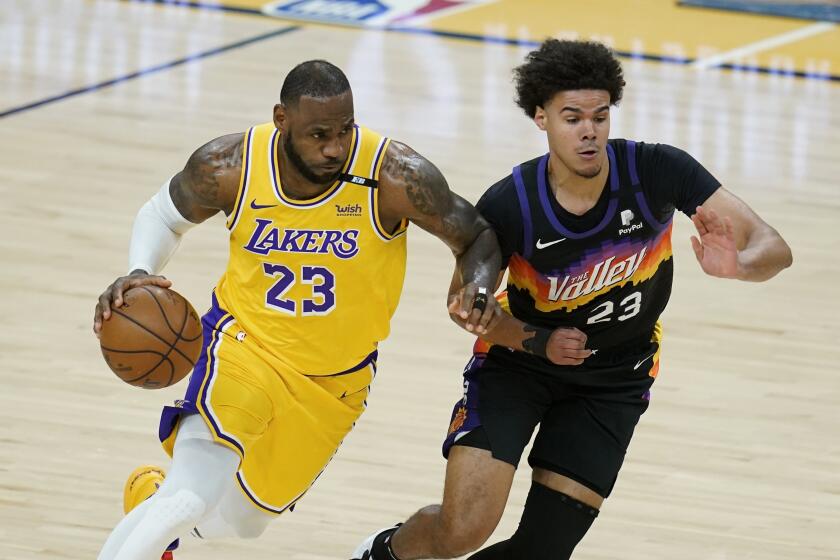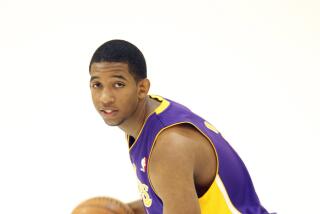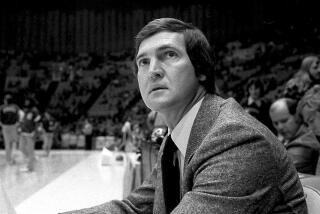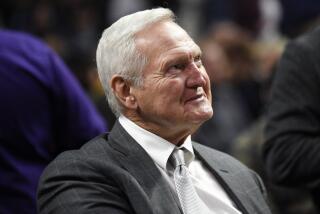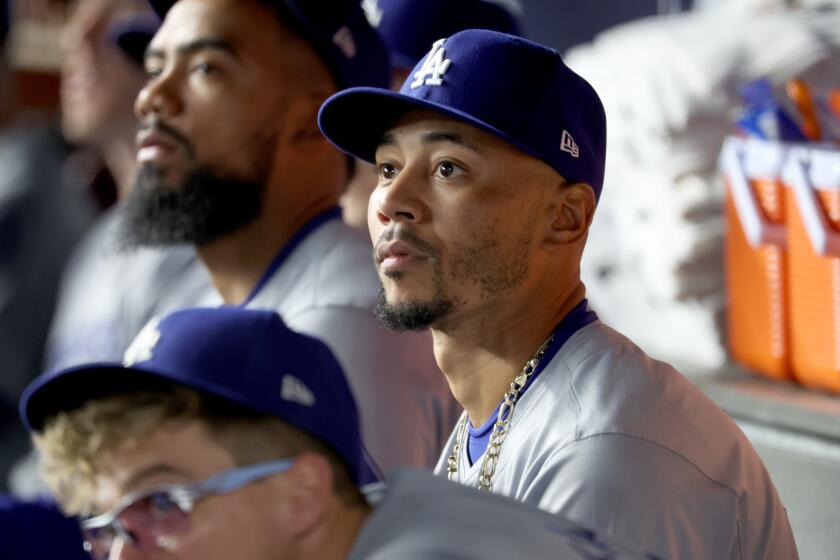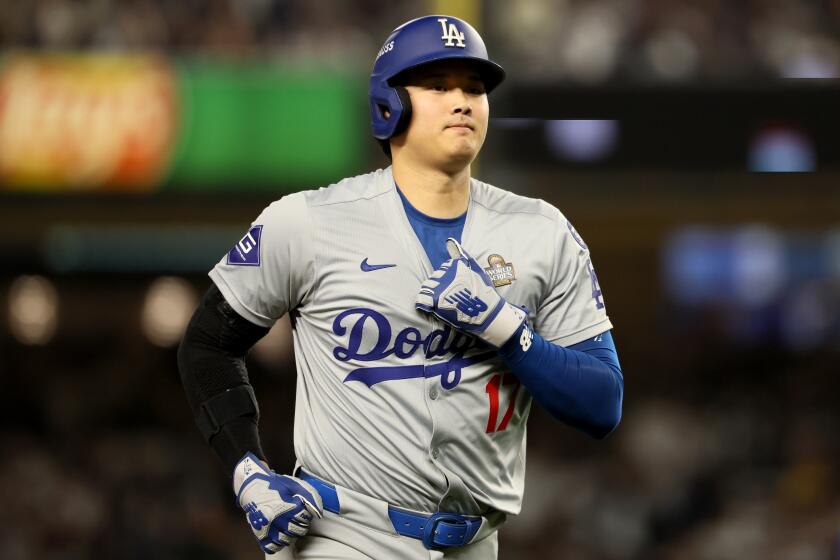NBA’s mercurial Morris twins now have an L.A. story. They’d love a Hollywood ending
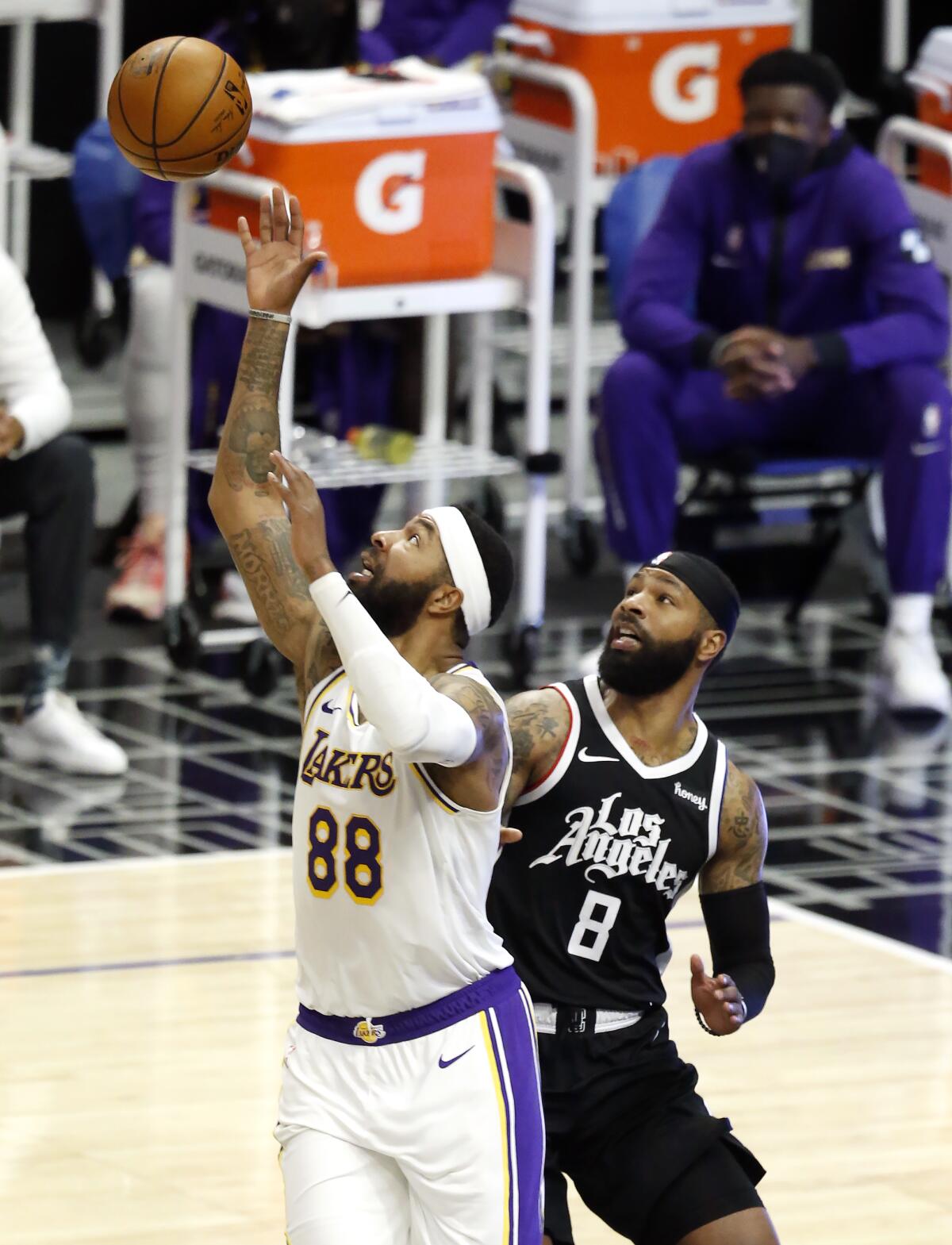
On the night of April 8, Marcus Morris Sr. returned to his locker in the fourth quarter of an easy Clippers win over the Phoenix Suns and scrolled through his phone to catch up on the evening’s events.
“No way that happened,” he said, chuckling to himself.
There was Marcus, dealing with the frustration of an early exit bestowed on him by his usual foil — an NBA referee. And somehow the refs had gotten to Markieff, too, booting the league’s notorious twin troublemakers during the same national TV doubleheader?
“I knew everybody would be like, we did that on purpose,” Marcus says. “First of all, we love playing. Second of all, we love money. So we’re not trying to get ejected.”
Marcus quickly reached out to Markieff, wondering what he did to draw the refs’ ire in the Lakers’ loss at Miami. Turned out, he had gotten into an official’s face while arguing a non-call. Marcus, meanwhile, had been tossed for taunting the Suns.
“It was two totally different cases, which was the funniest part,” Markieff says.
“Stuff always happens at the same time with us,” Marcus says. “I’m not even surprised anymore.”
More than a year into Marcus’ and Markieff’s arrival in Southern California, Los Angeles basketball fans finally got the full Morris twin experience. For those who have been following their journey from Philadelphia to the University of Kansas to locales across the NBA, it felt as if their careers had been building up to that moment of comedic kismet. Of course, the twins still believe there is a higher pinnacle to achieve — the Lakers and Clippers facing off in an all-Staples Center playoff series with a distinct Morris flavor.
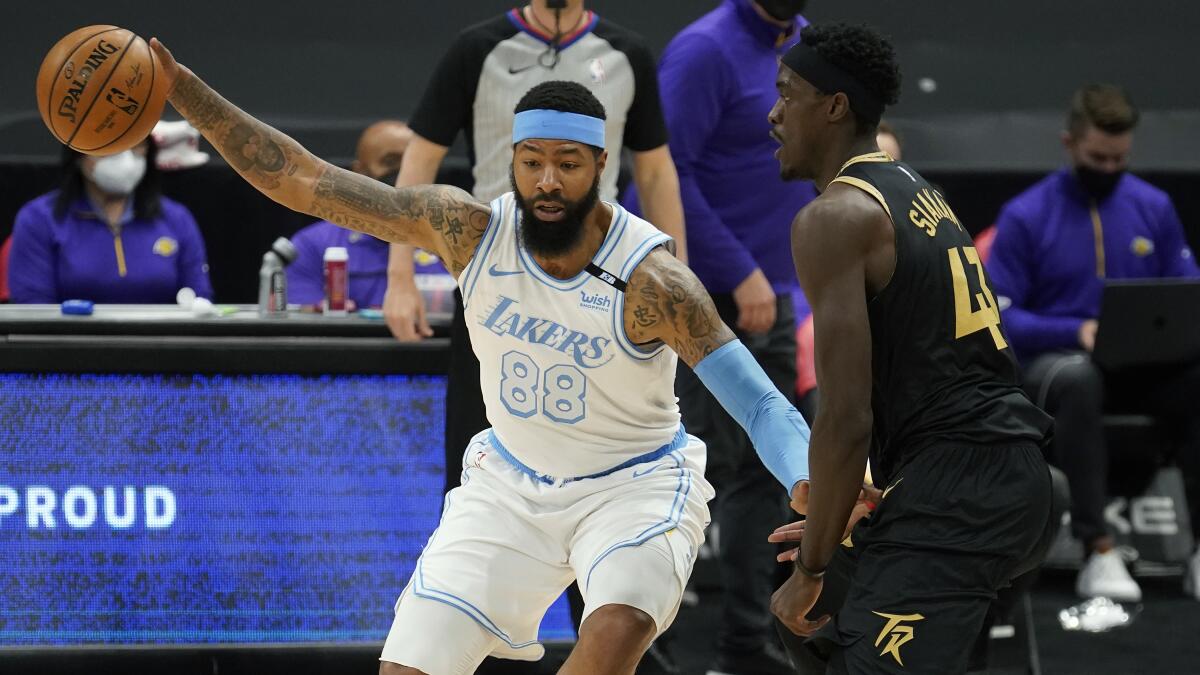
“Coming here, that was the first thought I had,” Markieff says. “Like, damn, I’d be competing against Marcus in the Western Conference finals.”
It didn’t happen in the NBA bubble last season as the Clippers blew a 3-1 series lead to the Denver Nuggets in the Western semifinals. And now the Clippers are tasked with overcoming a 2-0 series deficit against the Dallas Mavericks.
The good news for those who are pining for the L.A.-centric West finals that seemed preordained when the Lakers added Anthony Davis and the Clippers brought in Kawhi Leonard and Paul George is that the Morris twins have a way of getting what they want — even against incredible odds.
Just because Angel Morris had twin boys who loved to play basketball didn’t mean they were going to sprout to 6-foot-8 and 6-foot-9 in high school and become four-star recruits. Just because Kansas offered them both scholarships didn’t mean they were going to magically be plucked one after the other in the NBA draft lottery (Markieff went 13th to the Suns, Marcus 14th to the Rockets, which was only fitting since Markieff beat Marcus into this world by seven minutes). Just because the twins were in the NBA didn’t mean they would ever be teammates again, and yet it wasn’t too long before the Rockets traded Marcus to the Suns for a reunion in the desert.
The current Southern California rendezvous is the latest cosmic twist. Last winter the Clippers traded for Marcus, and a month later, when Markieff got a buyout from Detroit, he promptly signed with the Lakers. Now the twins are raising their young families 10 minutes apart in Playa del Rey (Markieff) and Manhattan Beach (Marcus).
“It’s funny that we do everything alike, so we try to have kids around the same age so they can grow up with each other and be best friends,” Marcus says. “Because we know the importance of having your family around for your success in life, just having that backbone and that stability. Being in the same city has been amazing.”
After all those fortuitous bounces to get here, the Morris twins do realize they can only control so much. If the Clippers again bow out of the playoffs early, will Marcus be a casualty of roster reconstruction? Will the Lakers look in another direction from a veteran like Markieff for their end-of-rotation depth?
The fates may have already intervened too many times on the twins’ behalf, but, at this point they have good reason to trust their luck.
::
In 2008, as the Kansas beat reporter for the Kansas City Star, I met Marcus and Markieff when I traveled to Philadelphia to profile them.
Immediately, I was struck by how openly affectionate two big, tough guys were toward one other — and how their orbit was centered around the guiding light of their mother, Angel, who never had help from their father.
“Angel has worked for 20 years as an operating-room attendant at Temple University Hospital,” I wrote for the Star. “She puts in long hours, and the family shares one car. Each day, one of the boys wakes up early and drives Angel to work. To decide who has to get up, they square off in a video game the night before. Winner gets to sleep in. The boys drive together to pick her up each night.”
The Lakers are extending their Staples Center lease through 2041, telling the Los Angeles Times in exclusive interviews promised building renovation and prime location were key to the deal.
Angel worked so much that Marcus and Markieff had to rely on each other. To reward her sacrifice, they stayed in lockstep, and, somewhere along the way, they basically became one.
“When it’s just the two of them, it would be the same thing as having one person with you,” Rich Marcucci, their prep school coach, told me.
And Marcucci offered this: “You can’t tangle with one twin. You get one twin, you get the twins. If the mother is around, you might get the whole family.”
Sure enough, Angel uprooted with Marcus and Markieff from Philly to the idyllic prairie college town of Lawrence, Kan., to support them. It was not a seamless transition. Before their first summer on campus ended, Markieff was accused of shooting a woman with an Airsoft rifle BB gun from their dorm room window.
Of their upbringing, they had told me, “Ain’t no trouble like Philly trouble,” and that was ringing true. Their freshman season, Marcus was called for two technical fouls, both of which contributed to KU losses. Losing was not acceptable in Jayhawk Nation, and the twins were largely viewed by the fans as knuckleheads.
But over the next two years, they started to figure it out. On the court, their skill level, particularly when they shared the floor, began to overwhelm opponents. Off it, they learned how to disarm their skeptics with subtle humor and charm derived from a big-city frankness. The twins once told us that they didn’t dunk much during their freshman year because they were too tired, therefore it would have taken too much energy. We died laughing. By the time they left KU after their junior years, they were dunking just fine.
Throughout my time covering the twins, I wondered how it was going to be for them as professionals living in different cities.
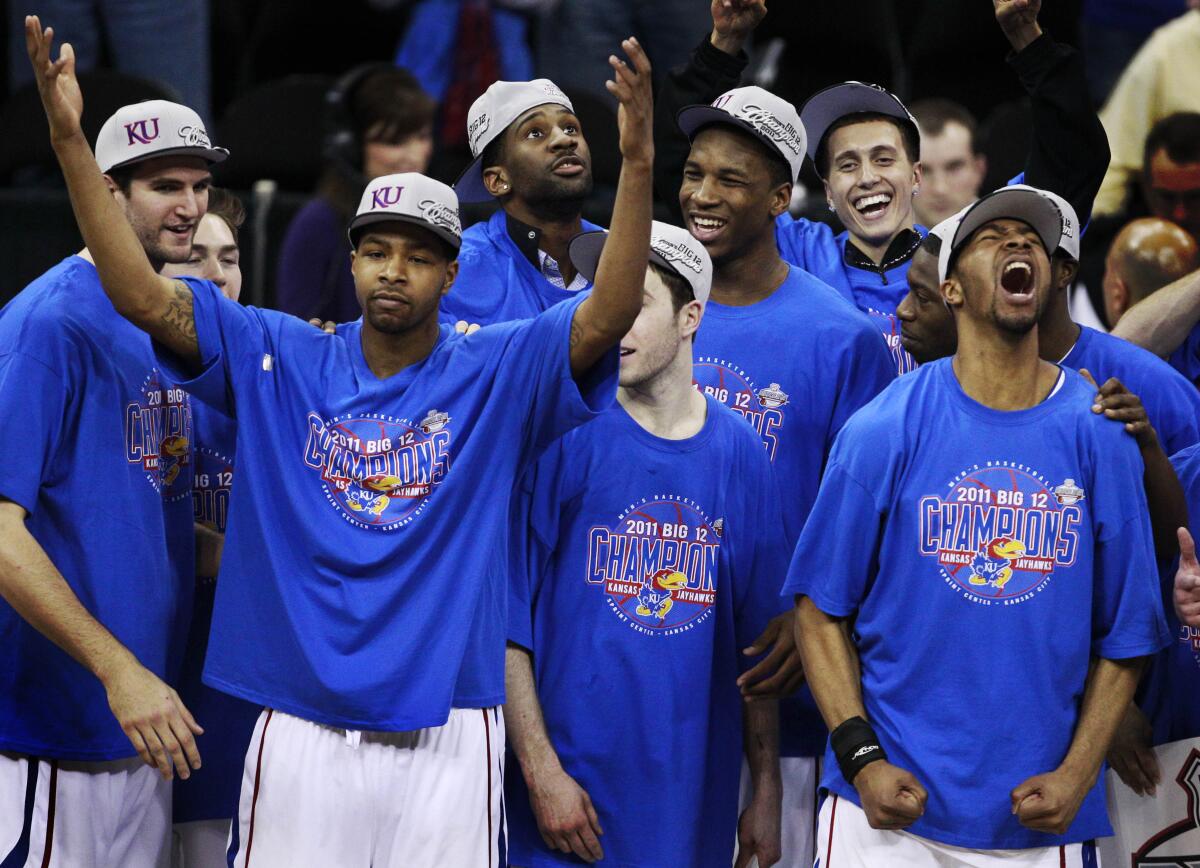
“I don’t feel like myself without him,” Marcus told me then. “Once or twice, I went to a party without him, and I felt like something was missing, like I wasn’t whole.”
With the twins suddenly in L.A. and carrying a decade of NBA tread on their tires, I was fascinated to find out how it had gone for them navigating the trials of adulthood without their other half.
::
They said they were prepared, and maybe they were. But still it was hard when Markieff started off strong with the Suns while Marcus was spending his first season in the NBA’s developmental league, looking for a spark with the Rockets.
“It was tough, man, because you always had each other,” Marcus says. “So anytime he wasn’t doing well or needed a boost, I was always there and vice versa. The game just comes so much easier when we’re together.”
Halfway through their second season of 2012-13, the Rockets told Marcus they were trading him and gave him a few options. The Suns were one of them.
“It was surreal picking him up from the airport,” Markieff says. “Like, this is really happening?”
They moved into a five-bedroom house together with a couple of their friends.
“It was like ... paradise,” Markieff says, as if drifting off to simpler times. “The best years of our life by far, I would say. By far.”
The twins would sign what they believed to be a team-friendly deal for both to stay in Phoenix and keep the dream alive. But after the 2014-15 season, the Suns traded Marcus to Detroit. Feeling spurned, Markieff demanded a trade from the team that drafted him. The next season, the Suns obliged, sending him to the Wizards.
Looking back, Markieff says he handled the situation immaturely. He feels it contributed to the twins’ reputation as “bad boys,” which was already gaining steam with their physical style and ever-active mouths.
“We’re not the top guys in the league, but the players know what you’re up against when you gotta go against me and my brother,” Markieff says.
“We ain’t backing down. That’s the Philly in us. It’s our competitive spirit. When people score baskets on me, it burns me up inside. I don’t know why it hurts so bad.”
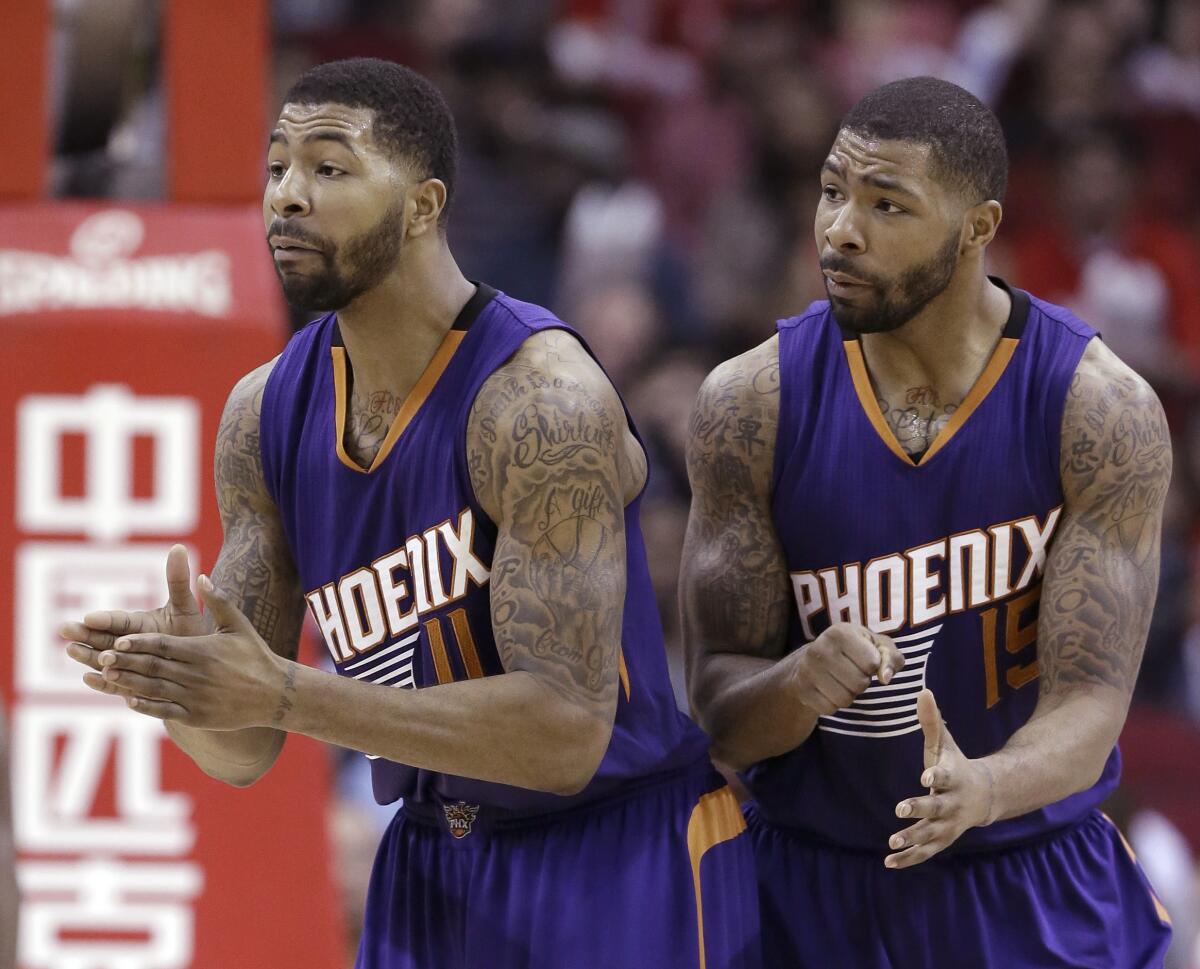
The twins learned how to be apart again during the season and would reunite each offseason at their home in South Florida. They started families and continued to evolve into their roles as players.
In Detroit, Boston and New York, Marcus became a starter and key cog by improving his 3-point shooting and bringing intimidation into every battle. Markieff’s best years were in Phoenix and Washington, but he carved out a niche as a stretch power forward who also brought that trademark Morris intensity.
In 2020, the Lakers and Clippers each decided they could use some of that.
::
Marcus and Markieff may wield a hard edge as basketball’s version of enforcers, but their day-to-day life in L.A. has nurtured their softer side.
Marcus has two young sons, while Markieff has a daughter and a son on the way.
The tight squeeze of the shortened pandemic season, with more games each week, has made it more difficult to balance basketball and family.
“When I’m home, I’m spending as much time with her as possible,” Markieff says of his daughter. “I pick her up from school, and I try to find something I know she likes and do it. It’s just something that I’ve got to do to keep that bond between us strong.”
Says Marcus, “We never had our dad growing up, so being in our kids’ life is a purpose for us. It’s my biggest purpose in life to raise these kids to be men and be successful in life. I take my hat off to my mom for raising us like that.”
Times reporters covering the Lakers-Suns and Clippers-Mavericks playoff series provide insight and analysis into what happened during Game 2.
The twins’ L.A. vibe is a 180-degree turn from their carefree days in Lawrence or Phoenix. With the Lakers and Clippers alternating games at Staples Center, they’re rarely free to hang out on the same day, but they will often stop by each other’s homes late at night on the way back from a game and catch up. Anything beats being apart, and they’re hopeful the fun won’t end anytime soon.
Marcus signed a four-year, $64-million deal with the Clippers last offseason. He should be safe from another move, but if they don’t turn the Mavericks series around and advance to the second round, there’s a chance the team will alter the chemistry.
Markieff played key minutes in the bubble for the Lakers on the way to his family’s first NBA championship and helped the team this season as it trudged through injuries to stars LeBron James and Davis. He may be outside the rotation in the playoffs, but when the Lakers were trailing at halftime in the play-in tournament against the Warriors, it was Markieff and fellow veteran Jared Dudley who spoke up to inspire the second-half push.
“I hope this is the last stop of my career,” Markieff says. “I would do anything to get back. Playing with LeBron and AD in L.A. and winning multiple championships? That would be a perfect ending.”
On that note, Marcus has other ideas. Yes, he was ecstatic for Markieff when the Lakers won the title, but he wants his own ring now.
“It’s driving us every day, man, we as the Clippers, this is something that has just never been done before,” Marcus says. “I think we’re right there.”
Asked about last season’s disappointment, Marcus sees a deeper reason there was no Lakers-Clippers playoff series.
“That matchup wasn’t supposed to happen in the bubble,” Marcus says. “That was supposed to happen in Staples Center.”
Coming from the mind of a Morris twin, that logic makes perfect sense.
More to Read
Go beyond the scoreboard
Get the latest on L.A.'s teams in the daily Sports Report newsletter.
You may occasionally receive promotional content from the Los Angeles Times.

